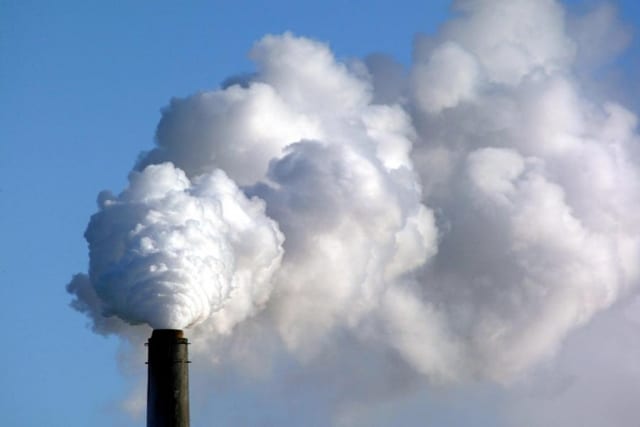Oil and gas giants are betting the shop on a carbon price being implemented in order to tackle climate change. But experts speaking at today’s Economist Energy Summit in London agreed that an effective global carbon price just isn’t going to happen.
Last month ten major fossil fuel companies, including Shell, Total, BP, and Statoil, announced a joint climate declaration recognising the need to limit the global average temperature rise to 2C. In order to achieve this, a “widespread and effective pricing of carbon emissions” is needed alongside more gas and renewables, they argued.
But as Henry Tricks, energy and commodities editor at the Economist, put to executives at BP, Statoil and Total: “You’re all basing a lot of your future scenarios on the idea that there will be a carbon price. You’re calling for it, and yet most people don’t agree that it’s going to happen on a global scale. What is needed for it to happen?”
Paris Climate Conference
This question comes after the United Nations’ climate chief Christiana Figueres told an investor event that a carbon price will not come out of Paris – this being the main ask of oil and gas giants in the run up to the climate conference.
Nick Butler, visiting professor at King’s College London, told the Economist event that a carbon price won’t come out of the Paris climate conference.
“I think that real change will only come when either we have a global carbon price at a level which really changes behaviour, which is probably $50-60 a tonne,” said Butler.
“Or a scientific breakthrough which produces a new form of energy, maybe solar plus storage, which is low-cost and low-carbon, and which changes the market. And I hope we get there and it’s a great possibility but we’re not there yet. At the moment there is still a lot of business to be done in the conventional energy sector.”
Paul Stevens, a distinguished fellow in energy, environment and resources from Chatham House, added: “The only way we’re going to get a real, effective carbon price is through taxation.”
Political Will
So aside from calling for a global carbon price, how exactly are oil and gas companies expecting this to become a reality?
Turns out that, according to the oil majors on the panel, it’s up to governments and society to drive this home. If they are successful in bringing in a carbon price, then the oil and gas companies will respond.
“If there is a price of carbon, our industry will adjust to meet them accordingly,” explained Philippe Boisseau, president of marketing, services and new energies at Total. “So what we’re saying is that if we just leave the forces of the market in the existing landscape without changing anything we won’t be able to adjust, just because we live in an economic environment that we need to operate in.”
He continued: “If there is a price of carbon we will adjust to this price, that’s what we’ve said. We can make efforts and we are making efforts but they are not enough. We need more if we want to deal with the two-degrees target, this is the meaning of the statement that was made.”
Dev Sanyal, executive vice president of strategy and regions at BP, added: “Ultimately societies have to determine what will happen, and governments are a reflection of society.
“Ultimately we work within a framework set by government,” Sanyal said, emphasising that there are other actors who must also play a role.
“It’s political will. What we’re saying down the panel, I’m afraid, is we need political will,” added Ian Taylor, president and chief executive at Vitol, global commodity trading company.
@kylamandel right. The Shell gambit. “We need a global CO2 price. What? You say that’s too hard?” ^criticises other solutions as imperfect
— Simon Evans (@DrSimEvans) November 4, 2015
In the meantime, gas, gas, and more gas, was emphasised by everyone on the panel. And while they all recognised the challenge of meeting a 2C target, no substantial solutions other than a carbon price were put forward.
But as Tricks countered, who else is better placed than the oil industry to push governments on a carbon price?
“The oil industry has a very strong lobby, it could put, it could have put, a lot more effort into lobbying for this change,” he said. “Someone’s got to be the driver on it.”
Subscribe to our newsletter
Stay up to date with DeSmog news and alerts







